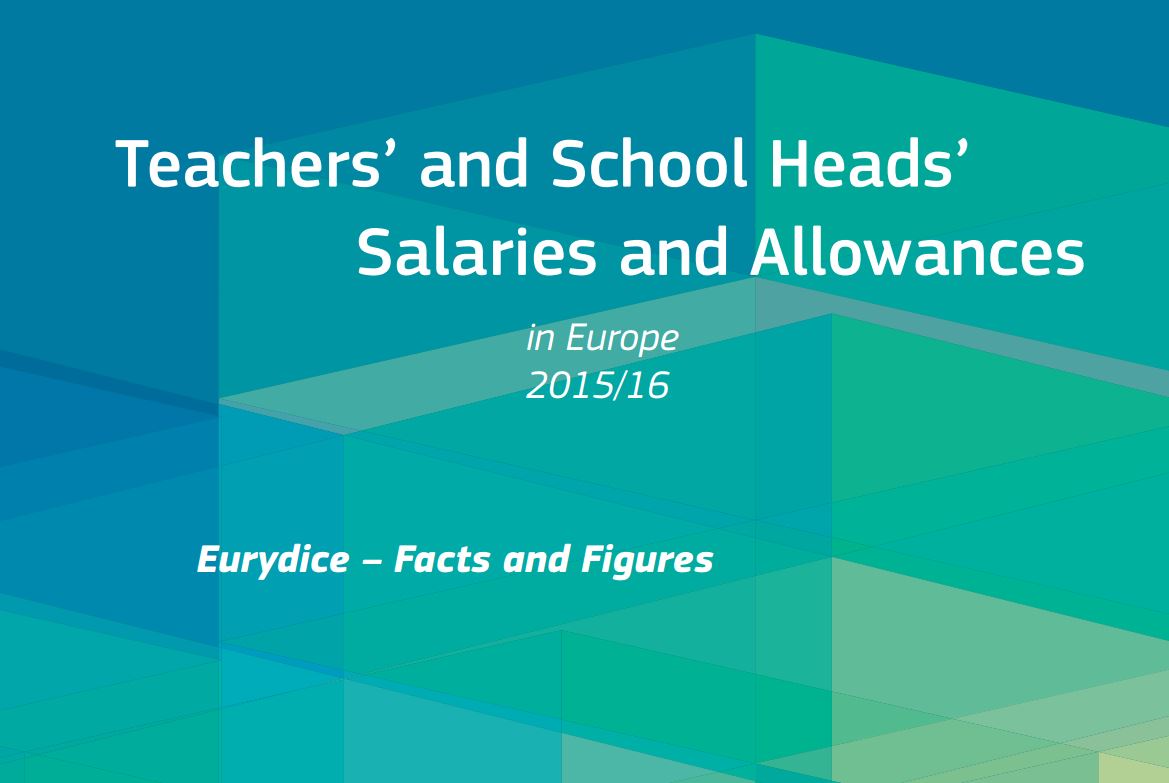New Eurydice report on teachers’ salaries: has the education sector really recovered from economic crisis?
Published:
On 5 October 2016, Eurydice published a new annual report on Teachers’ and School Heads’ Salaries and Allowances in Europe for the period 2015-2016 that analyses statutory salaries and allowances for teachers and school heads in 40 European countries and regions and looks into how they have changed as compared to 2014/2015. The main conclusion of the report is that in 2015/16, teachers' statutory salaries increased in the great majority of European countries and remained at about the same level as in 2014/15 in the others. However, does it really mean education systems in European countries have recovered from the economic crisis that broke out in 2008 and following years of salaries’ cuts and freezes?
Whilst ETUCE, of course, welcomes such positive tendencies of frozen or reduced salaries slowly returning to pre-crisis levels, it is concerned about still-present effects of the economic crisis on teachers’ salaries and working conditions and points out that the pay increase is not significant when compared to the pre-crisis situation. According to the Eurydice report, in most of the countries where the increase took place, it amounted only to 1-4% (Spain and the UK – 1 %, Serbia and Macedonia – 4%), while in some countries the increase was just a compensation for inflation (Germany) or a lagged effect of the reforms implemented several years earlier (Slovakia – reforms in 2009, Hungary – in 2012, Estonia – in 2013).
Increase in teachers’ salaries registered by the Eurydice report in 24 European countries is mainly a result of a general salary adjustment for all public employees, whereas the ETUCE survey on the “State of Funding in Education, Teachers’ working conditions and Trade union actions, Social dialogue and Collective bargaining” reveals that in both Western and Central/Eastern Europe, teachers’ salaries in comparison with other graduate professions continue to worsen. The Eurydice report also points out that in about 30 out of 40 surveyed countries, the minimum annual statutory salaries for teachers are lower than the Gross Domestic Product (GDP) per capita.
On top of the basic salary, teachers often receive salary allowances and complementary payments for further qualifications, overtime, or positive teaching performance, which might make up a significant proportion of their total remuneration. According to the Eurydice report, the most common allowances in Europe are granted for “additional responsibilities” and “overtime”, not “continuous professional development qualifications” or “good student results”. ETUCE warns that working overtime and being burdened with administrative responsibilities can be harmful for teachers’ physical and psychological health and in the long term might affect the quality of education.